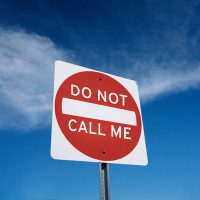Court Grants Summary Judgment In Favor Of Defendant Under The “Safe Harbor” Provision Of The TCPA

In a decision regarding the “safe harbor” provision of the TCPA, the court granted a summary dismissal to the defendant, Efinancial LLC, for alleged violations of the TCPA and the Do Not Call List.
In this case, the plaintiff Johansen alleged that the defendant contacted him without his express consent at a number that the plaintiff had registered on the Do Not Call List. The defendant argued that the plaintiff consented to being contacted by the business. But even if they hadn’t, the defendant’s TCPA compliance procedures were sufficient to provide Efinancial with a complete defense under the safe harbor provision of the TCPA.
The district court presiding over the case agreed with the defendant and granted summary judgment in its favor. The court agreed that the defendant had consented to being called and that the defendant’s procedures shielded it from liability.
What is the safe harbor provision of the TCPA?
The safe harbor provision applies only to claims that are brought under the TCPA’s prohibition on contacting numbers that appear on the Do Not Call List. It states that if a business has called someone on the Do Not Call List, it can avoid liability if the call was placed in error and “as part of its routine business practice.” The business must, however, meet various standards. Specifically, it must:
- Have written procedures to comply with the national Do Not Call List rules
- It must train personnel on those specific procedures
- It must maintain a list of phone numbers that the business cannot contact
- Have a process to prevent telephone solicitations to any telephone number on any list established pursuant to Do Not Call rules.
- Have a process in place to ensure that it does not sell, rent, lease, purchase or use the national Do Not Call List database, or any part of it, for any purpose except compliance with the TCPA
In the case mentioned above, the defendant business was able to establish that it sufficiently complied with provisions of the TCPA’s Do Not Call List and provided a robust internal infrastructure for complying with provisions of the TCPA.
I’m on the Do Not Call List and received an unsolicited telemarketing call or text
If you’re on the Do Not Call List and you received an unsolicited telemarketing call or text from a business, you may be entitled to compensation. While the case mentioned above cites a business that won its court battle against a plaintiff, not every business complies with the provisions of the TCPA. You should contact an Ohio TCPA lawyer to determine whether or not you have a case against the business. If so, you can recover $1,500 per unwanted call.
Talk to a Columbus, OH TCPA Violations Attorney Today
If you have received unwanted telemarketing communications from a business, you may be entitled to sue. A Columbus, OH TCPA violations attorney can help you through the process of filing your suit and recovering damages related to the unwanted calls. Call Kohl & Cook Law Firm, LLC today to schedule an appointment and learn more about how we can help.
Source:
casetext.com/case/johansen-v-efinancial-llc-1
